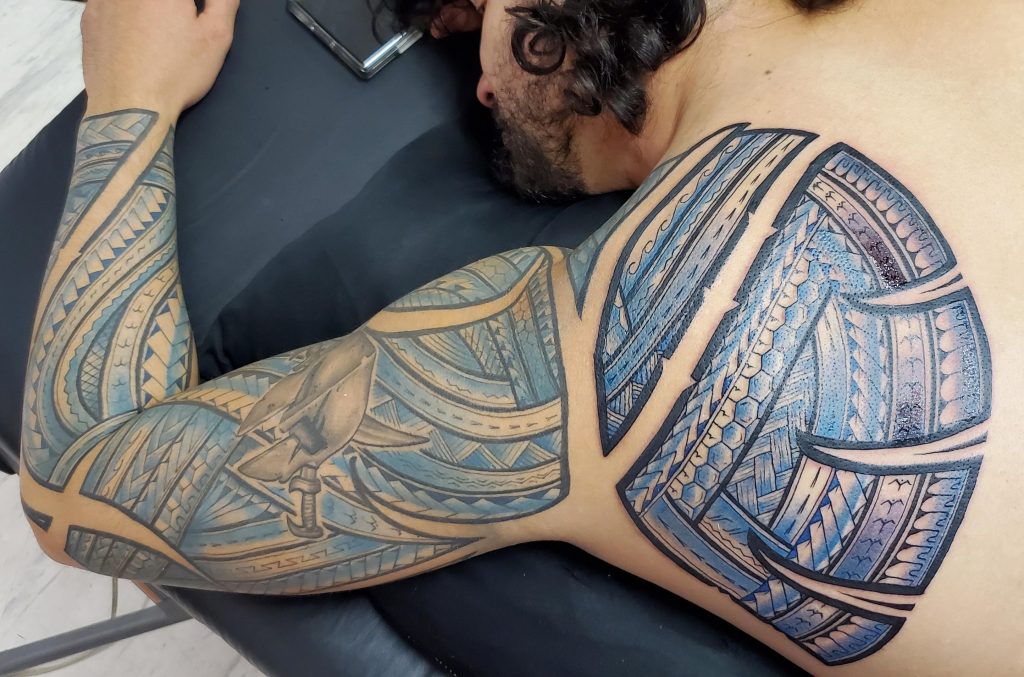

Tribal tattoos are a form of body art that has been practiced by indigenous cultures for thousands of years. These tattoos were used to signify social status, religious beliefs, and even served as a form of protection against evil spirits. Today, tribal tattoos have become increasingly popular among people from all walks of life, and are often used as a form of self-expression and personal identity.
The history of tribal tattoos dates back to ancient times, where various cultures such as the Polynesians, Maori, and Samoans would use tattoos to symbolise social status, achievements, and personal identity. The intricate designs and patterns of these tattoos often represented specific tribal traditions, and were created using natural pigments and traditional tattooing tools such as sharpened bones, sticks, and thorns.
In modern times, tribal tattoos have become a popular form of body art, with designs ranging from simplistic black line work to complex and intricate patterns. These tattoos are often associated with strength, power, and masculinity, and are commonly found on men’s arms, chest, and back.
One of the most popular forms of tribal tattoos is the Polynesian tattoo, which is characterised by its bold, symmetrical designs and intricate patterns. Polynesian tattoos were traditionally used to symbolise a person’s social status and would often cover large portions of the body. Today, Polynesian tattoos are still popular and are often used to represent strength, power and bravery.
Another popular form of tribal tattoo is the Maori tattoo, which is characterised by its curvilinear designs and spirals. Maori tattoos were traditionally used to signify a person’s ancestry and social status and would often cover the face and body. Today, Maori tattoos are still popular and are often used to represent strength, courage and spiritual beliefs.
In addition to their cultural significance, tribal tattoos have also become popular among non-indigenous cultures as a form of self-expression and personal identity. Many people choose to get tribal tattoos as a way of expressing their individuality, and as a reminder of their personal values and beliefs.
However, it is important to note that tribal tattoos can also be controversial, as they have been associated with cultural appropriation and the exploitation of indigenous cultures. Many people argue that getting a tribal tattoo without any connection to the culture it represents is disrespectful and appropriative and can perpetuate harmful stereotypes and cultural erasure.
In conclusion, tribal tattoos have a rich history and cultural significance that dates back thousands of years. While these tattoos have become increasingly popular among non-indigenous cultures, it is important to be mindful of their cultural significance and to respect the traditions and beliefs of the cultures they originate from. Ultimately, the decision to get a tribal tattoo is a personal one and should be made with consideration and respect for the culture it represents.